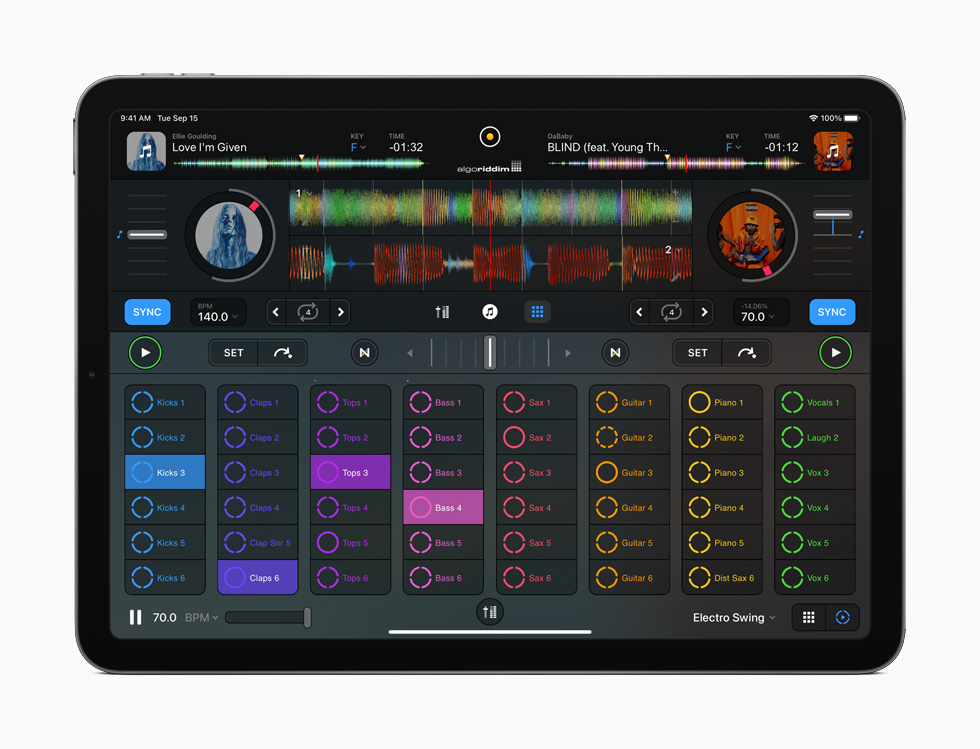Apple shifts 120,000 iPads on first day on sale
With nearly a month still to go before any devices are actually sent out, Apple has racked up an estimated $75 million in iPad pre-orders.

Apple racked up an estimated 120,000 pre-orders for the iPad as the tablet went on sale through the Apple Store in the US on Friday.
Market analyst Investor Village also claims that more than two thirds of sales were for the Wi-Fi-only iPad, with just 31 per cent of consumers opting to pay the $130 price premium for the AT&T-powered 3G version. That aside, sales were reportedly fairly evenly split between the 16GB, 32GB and 64GB iPad.
The sales estimate is very much unofficial, and is based on the order numbers given out to customers. The team at Investor Village's AAPL Sanity board sampled 99 orders over 19.5 hours, arriving at a total of 124,596 orders placed for Apple products on Friday.
It then subtracted 16,500 the average number of orders placed on a typical day then multiplied by 1.11, the average number of iPads ordered per customer based on the 99 orders it tracked, to reach the final tally of 119,987.
The numbers generally exceed most forecasts of consumer demand for the iPad, with revenue from opening day pre-orders for the Apple tablet estimated at around $75 million.
However, while most analysts have the overall sales prediction of 120,000 is likely to prove fairly accurate, the split between Wi-Fi and 3G models is more speculative, based solely on the 99 orders actually tracked.
The preference for the Wi-Fi-only version is hardly surprising, though, considering not only the price difference but also the fact that the less expensive iPad will be delivered on 3 April, with the 3G version only being shipped at the end of April.
Get the ITPro daily newsletter
Sign up today and you will receive a free copy of our Future Focus 2025 report - the leading guidance on AI, cybersecurity and other IT challenges as per 700+ senior executives
There has already been speculation that the higher-than-expected pre-orders could leave Apple with a problem matching demand with physical stocks in time for the early April shipping date.
-
 Should AI PCs be part of your next hardware refresh?
Should AI PCs be part of your next hardware refresh?AI PCs are fast becoming a business staple and a surefire way to future-proof your business
By Bobby Hellard
-
 Westcon-Comstor and Vectra AI launch brace of new channel initiatives
Westcon-Comstor and Vectra AI launch brace of new channel initiativesNews Westcon-Comstor and Vectra AI have announced the launch of two new channel growth initiatives focused on the managed security service provider (MSSP) space and AWS Marketplace.
By Daniel Todd
-
 Apple iPad Air (2020) review: The executive’s choice
Apple iPad Air (2020) review: The executive’s choiceReviews With the iPad Air’s most recent redesign, Apple has delivered the best bang-for-buck tablet money can buy
By Connor Jones
-
 In praise of the early adopters
In praise of the early adoptersOpinion The IT industry needs early adopters like you – and tech that fell by the wayside should still be celebrated
By David Crookes
-
 Apple is experimenting with attention sensors to save battery life
Apple is experimenting with attention sensors to save battery lifeNews Your next Apple device may shut down if you are not paying attention to it
By Justin Cupler
-
 Apple unveils M1-powered iPad Pro and iMac at April 2021 event
Apple unveils M1-powered iPad Pro and iMac at April 2021 eventNews The new Apple Silicon hardware will be available to order from April 30
By Justin Cupler
-
 iPad Air 2020 debuts with A14 Bionic chip and USB-C
iPad Air 2020 debuts with A14 Bionic chip and USB-CNews Apple touts its latest flagship tablet as the “most powerful” iPad Air ever
By Sarah Brennan
-
 Apple reveals iPadOS at WWDC19
Apple reveals iPadOS at WWDC19News Cupertino's tablet range breaks free of iOS with new dedicated software
By Jane McCallion
-
 Best iPad apps for 2019
Best iPad apps for 2019Best Our collection of the best and most popular iPad apps to download in 2019
By Connor Jones
-
 Apple Event: New MacBook Air, iPad Pro and Mac mini launched
Apple Event: New MacBook Air, iPad Pro and Mac mini launchedNews Apple appeases fans with long-requested hardware refreshes
By Adam Shepherd